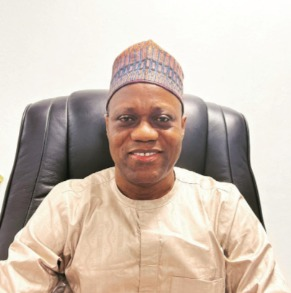Life expectancy rate in Nigeria Increases -NBS.
Life expectancy rate for males and females in Nigeria witnessed a gradual and continuous increase from 2015 to 2022, according to the National Bureau of Statistics (NBS).
This is contained in the 7th Edition of the NBS Demographic Statistics Bulletin 2022 released in Abuja on Tuesday.
The statistical bulletin presents an updated version of previous key demographic indicators such as population, trafficking in persons, fertility, mortality, reproductive health issues and health records, remittances inflows and outflows, and NIN registration in Nigeria from 2019-2022.
The data for the publication was compiled from related documents of relevant Ministries, Departments, and Agencies (MDAs), using appropriate techniques.
The report said life expectancy at birth indicates the average number of years a group of newborn infants would live if prevailing patterns of mortality at the time of birth were to remain the same all through their lives.
It said life expectancy at birth for males grew from 53.2 years in 2015 to 55.1 years in 2022, while life expectancy for females increased from 55.3 years in 2015 to 57.2 years in 2022.
“It is important to note that the life expectancy at birth for the female population in Nigeria is higher than the male population.
“The life expectancy of females exceeded males by 2.1 years each in 2021 and 2022.
“These increases indicate that there have been improvements over the period in the well-being of women and children (both males and females) as well as improvements in Nigeria’s healthcare system.
“It also shows that there was a decline in cause-specific mortality rate.”
The NBS said to further improve life expectancy at birth in Nigeria, there was a need for the government to invest in highly cost-effective health-promoting policies and interventions.
It said the investment should be especially in upgrading healthcare for women and children, improving child nutrition, reducing indoor and outdoor air pollution, addressing unmet family planning needs, improving access to safe drinking water, etc.
The report said results of the Multiple Indicator Cluster Survey (MICS 6, 2021) revealed that Jigawa had the highest percentage of non-compliance to any method of contraceptive at 93.0 per cent.
It said Lagos had the lowest percentage at 54.7 per cent.
The report also revealed that Lagos recorded the highest number of uses of modern contraceptive methods at 36.6 per cent, while Jigawa had the lowest at 3.6 per cent.
The NBS said the projected population figure for Nigeria in 2022 was 216,783,381, comprising 108,350,410 males and 108,432,971 females.
The report said data from the Central Bank of Nigeria showed that the United Kingdom ranked top among other countries in terms of inward flow of remittance with 12.36 billion dollars in 2021.
“While the United States of America stood top in outward flows of remittance within the same period with 13.37 million dollars,” it said.
It said Benin Republic accounted for over half of the total rescued foreign victims of trafficking in Nigeria constituting 61.22 per cent of the entire foreigners rescued in 2021.
“This was followed by Cameroonians and Togolese at 24.49 per cent and 8.16 per cent, respectively.
The report said a total of 103 human traffickers were intercepted between 2019 to 2021, while procurement of persons for sexual exploitation stood top with 28 traffickers.
“This was followed by fraudulent entry of persons with 20 traffickers, and buying or selling human beings for exploitation with 17 traffickers.”
It showed that 482 Nigerian victims were rescued from 2019 to 2021, with Mali recording the highest number with 142 persons, followed by Benin Republic with 54 persons.
The report said South Africa, Saudi Arabia, Iraq, India, and Gabon recorded the least number of rescued Nigerian victims with one person each.
It said the total number of registrations and issuance of National Identification Numbers increased in 2021 to 27,052,148 from 5,017,806 in 2020 and 5,836,663 in 2019.
The NBS said the upward movement in 2021 registrations could be attributed to the deadline given to Nigerians by the Federal Government.
“While setbacks or low registrations for 2020 could be attributed to the lockdown due to the COVID-19 pandemic, ” NBS said.
